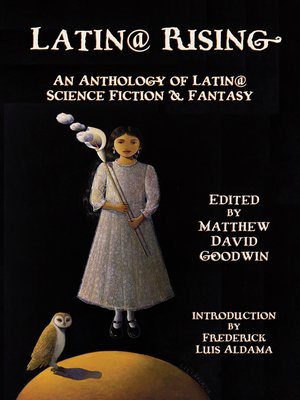
Sign up to save your library
With an OverDrive account, you can save your favorite libraries for at-a-glance information about availability. Find out more about OverDrive accounts.
Find this title in Libby, the library reading app by OverDrive.



Search for a digital library with this title
Title found at these libraries:
| Library Name | Distance |
|---|---|
| Loading... |
Latin@ Rising is the first anthology of science fiction and fantasy written by Latinos/as living in the United States. The 22 authors and artists included in this anthology come from all over the U.S. and from eight different national traditions. They include well-known creators like Kathleen Alcalá, Pablo Brescia, Sabrina Vourvoulias, Ana Castillo, Junot Díaz, Richie Narvaez, Giannina Braschi, and Daniel José Older; they also include new voices, well worth hearing. The book gives an overview to the field of Latino/a speculative, showing the great variety of stories being told by Latino/a writers. Fifty years ago the Latin American "Boom" introduced magical realism to the world; Latin@ Rising is the literature that has risen from the explosion that gave us García Márquez, Jorge Amado, Carlos Fuentes and others. The 21st century writers and artists of Latin@ Rising help us to imagine a Latino/a past, present, and future which have not been whitewashed by mainstream perspectives. Contrary to the popular perception, Latino/a Literature is not just magical realism and social realist protest literature—it also contains much speculative fiction. By showing the actual breadth of genres being used by Latino/a authors, Latin@ Rising will help extend the boundaries of the Latino/a literature canon. Latin@ Rising demonstrates the value of speculative fiction for the Latino/a community: it gives Latinos/as a vital means for imagining a past and a future in which they play a pivotal role, and it constitutes a narrative of the effects of technology on the Latino/a community. The book shows how the richness of the speculative genres provide U.S. Latinos/as with a unique medium to discuss issues of colonialism, migration, and the experience of being bicultural.







